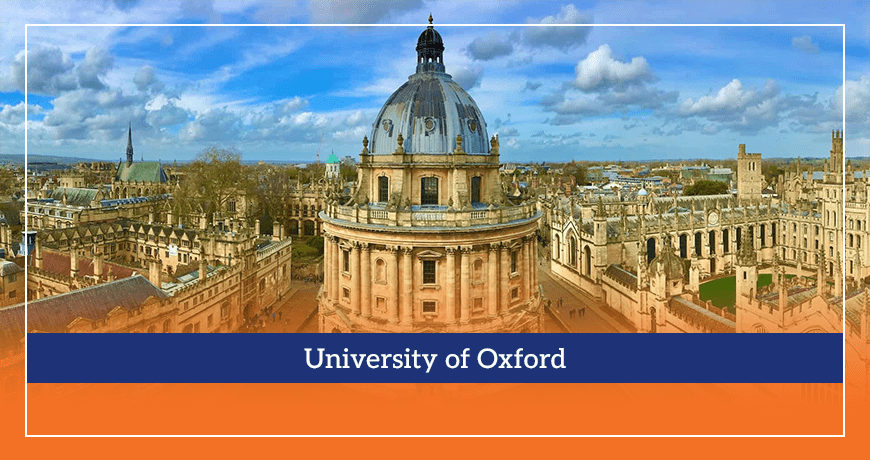Did you know that over 33,000 students applied for undergraduate law programs in the UK in 2022, yet only about 29,900 secured a place? This statistic highlights the competitive nature of legal education in a country renowned for its common law tradition and globally influential institutions. Choosing the right university is a crucial step for aspiring lawyers, as it lays the foundation for their academic pursuits, establishes their professional network, and opens up career opportunities.
This article guides you through the best universities for law in UK. You will discover detailed information about top programs, including their unique teaching methods, course structures, and acceptance rates. We also provide insights into the application process and what makes each institution stand out. By the end, you will have a clearer understanding of where to pursue your legal studies to align with your career goals and personal aspirations.
Top 10 Best Universities for Law in the UK 2026
1. University of Cambridge
The University of Cambridge is one of the best law universities in the UK. It comprises 31 constituent colleges and over 150 departments, faculties, and schools.
The Cambridge law program is highly competitive, with exceptionally high admission standards. In recent years, the acceptance rate for the law program has been around 10%. You must have a solid academic record, including high grades in mathematics and English.
The University of Cambridge Faculty of Law offers many law-related programs, centres, and initiatives. For example:
- The Cambridge Centre for Public Law
- The Centre for International Law
- The Centre for Criminology
- The Centre for Gender Studies
Some of the notable achievements and accolades of the Cambridge law program include:
- The Cambridge law program is ranked first in the world by the QS World University Rankings by Subject: Law.
- The Cambridge law program is ranked second worldwide by the Times Higher Education World University Rankings by Subject: Law.

2. University of Oxford
Oxford University is also one of the top law schools in the UK. It's consistently ranked among the top universities in the world and is one of the most prestigious institutions.
Applicants must also have a strong academic record and interest in the law to study law at Oxford. The specific requirement will vary based on your level of study and program.
The following are some notable programs, centres, and initiatives under the Faculty of Law at Oxford University:
- The Oxford Centre for Socio-Legal Studies
- The Centre for International Law
- The Oxford Institute of Legal Information
- The Oxford Human Rights Hub
- The Centre for European Legal Studies
Some of the notable achievements and accolades of the Oxford law program include:
- The Oxford law program is ranked first in the world by the Times Higher Education World University Rankings by Subject: Law.
- Oxford law graduates have served as judges, barristers, solicitors, and legal academics in some of the most prestigious institutions in the world.
3. London School of Economics and Political Science (LSE)
Founded in 1895, LSE is one of the most prestigious universities in the United Kingdom and the world. This is the top university in the UK for law, attracting students from around the world. Its graduates go on to successful careers in a wide range of fields, including law, finance, politics, and academia.
Applicants to the LSE law program must have a solid academic record, including a good grade point average (GPA) and high scores on standardised tests like the LSAT or GRE.
LSE Law School offers a variety of notable law-related programs, centres, and initiatives. Some of these include:
- The Centre for International Law (CIL)
- The Centre for Socio-Legal Studies (CSLS)
- The Human Rights Law Centre (HRLC)
- The LSE Law Clinic
Some of the school's notable alumni include:
- Philip Anderson, former President of the Supreme Court of the United Kingdom
- Dame Brenda Hale, former Deputy President of the Supreme Court of the United Kingdom
4. University College London (UCL)
UCL is one of the world's leading universities, renowned for its academic excellence and diverse student body.
The specific admission requirements at the UCL Law program may vary depending on your country of origin and whether you are applying as an undergraduate or postgraduate student. UCL also requires applicants to take the Law National Aptitude Test (LNAT).
Notable law-related programs, centres, or initiatives include:
- Centre for Legal Education Research
- Centre for Disability Law & Policy
- Institute of Advanced Legal Studies
- Centre for Access to Justice
The following are some of the achievements or accolades of UCL in the field of law:
- UCL Law Faculty is ranked first in the UK for research excellence.
- UCL law graduates are highly sought-after by employers in the UK and around the world.
- UCL Law Faculty has produced many notable alumni, including Lord Woolf, Cherie Blair, and Baroness Hale.

5. King's College London
King's College London is one of the oldest and most prestigious universities in the world. It is another one of the best universities for law in the UK. KCL is renowned for its academic excellence, research prowess, and international outlook.
For undergraduate law programs at the Dickson Poon School of Law at KCL, applicants must have a high 2:1 non-Law undergraduate degree. For postgraduate law programs, applicants must typically have a good 2:1 with evidence of 1st-class ability.
The school is also home to several notable law-related programs, centres, and initiatives, including:
- The King's Legal Clinic
- The Professional Law Institute
- The Centre for Criminal Justice Studies
- The Centre for Law, Society and Justice
6. University of Edinburgh
The University of Edinburgh is one of the best universities in the UK for law. It is renowned for its academic excellence, research prowess, and global outlook. The university has a diverse student body, comprising over 50,000 students from more than 150 countries.
The School of Law at the University of Edinburgh offers a variety of law programs, including undergraduate and postgraduate degrees. The admission requirements for each program vary; however, all applicants must have a strong academic record and demonstrate a genuine interest in the law.
It is home to many notable law-related programs, centres, and initiatives, including:
- The Edinburgh Law Clinic
- The Centre for Constitutional Law
- The Centre for Scots Law
The University of Edinburgh's School of Law has produced several notable alumni, including:
- David Hume, Scottish philosopher and economist
- Adam Smith, Scottish philosopher and economist
- Henry Cockburn, Scottish judge and historian
7. University of Glasgow
The University of Glasgow is a proud member of the Russell Group and is ranked among the world's top 100 universities.
The minimum entry requirements for the undergraduate law program (LLB) are A-levels: AAB or higher, including English and at least one other subject relevant to law or equivalent qualification.
The School of Law at the University of Glasgow has some notable law-related programs, centres, and initiatives, including:
- The Centre for Constitutional Law
- The Centre for Environmental Law
- The Centre for Family Law and Policy
- The Centre for Human Rights Law
- The Centre for International Public Law
In recent years, the School of Law has won many awards for its teaching and research, including:
- The Queen's Anniversary Prize for Higher and Further Education (2019)
- The Times Higher Education Law School of the Year (2018)
- The Guardian University Guide Law School of the Year (2017)

8. University of Manchester
The University of Manchester stands out for its exceptional standards in both teaching and research within the field of law. Renowned as one of the premier law schools in the United Kingdom, the School of Law at the University of Manchester consistently earns its place among the top 100 law schools globally. It is recognised as the best university in the UK for law, reflecting its commitment to excellence in legal education and scholarship.
The entry requirement for the undergraduate law program at this university is A-levels: AAB or higher, including English and at least one other subject relevant to law. For the postgraduate law programs, the minimum entry requirement is an excellent undergraduate degree in law from a recognised university.
The School of Law at the University of Manchester has a number of notable law-related programs, centres, and initiatives, including:
- The Centre for Criminal Justice Research
- The Centre for Health, Law and Ethics
- The Centre for Human Rights
- The Centre for Intellectual Property and Media Law
- The Centre for International Law
In recent years, the Faculty of Law has won many awards for its teaching and research, including:
- The Queen's Anniversary Prize for Higher and Further Education (2017)
- The Times Higher Education Law School of the Year (2016)
- The Guardian University Guide Law School of the Year (2015)
9. Durham University
Durham University is a member of the Russell Group of universities and the Coimbra Group, a network of European universities.
The general entry requirements for the law program at Durham University include A-levels: AAA, including at least one A in a relevant subject such as Law, English, or History, or IB Diploma with 36 points.
Some of the notable law-related programs, centres, or initiatives at Durham Law School include:
- Centre for International Law
- Centre for Law and Society
- Centre for Law and Society in Africa
- Centre for Law and the Humanities
- Centre for Public Law
Durham Law School has also produced several notable alumni, including:
- Peter Cameron, former Prime Minister
- Sir Jonathan Mance, former Deputy President of the Supreme Court of the United Kingdom
- Lord Justice Jackson, Lord Justice of Appeal
10. University of Bristol
Founded in 1876, the University of Bristol is one of the most prestigious universities in the UK, ranked 58th globally by the QS World University Rankings 2023. It’s known for its high-quality teaching and research and is a member of the Russell Group of research-intensive universities.
The general entry requirements at the University of Bristol Law program are A-levels: AAA, including at least one A in a relevant subject such as Law, English, or History.
Some of the notable law-related programs, centres, or initiatives at the University of Bristol Law School include:
- Centre for Criminal Justice Studies
- Centre for European Law
- Centre for Gender and Law
- Centre for Law and Society
- Centre for Law, Policy and Technology
Some of the achievements and accolades of the University of Bristol Law School include:
- Ranked 5th in the UK for Law by The Complete University Guide 2023
- Ranked 7th in the UK for Law by The Guardian University Guide 2023
- Winner of the Times Higher Education Law School of the Year award in 2011
Law University Ranking 2026
Complete University Guide (CUG) UK Law Rankings 2026
The Complete University Guide focuses on UK-specific metrics, including student satisfaction, research quality, and graduate prospects. The top 10 universities for Law in 2026 are:
|
UK Rank
|
University
|
|
1
|
University of Cambridge
|
|
2
|
UCL (University College London)
|
|
3
|
Durham University
|
|
4
|
University of Oxford
|
|
5
|
London School of Economics and Political Science (LSE)
|
|
6
|
King’s College London
|
|
7
|
University of Bristol
|
|
8
|
University of Glasgow
|
|
9
|
Queen’s University Belfast
|
|
10
|
Queen Mary University of London
|
QS World University Rankings for Law & Legal Studies 2025
QS ranks universities globally based on academic reputation, employer reputation, and research impact. The top 10 UK universities in the global context for 2025 are:
|
UK Rank
|
Global Rank
|
University
|
Academic Reputation
|
Employer Reputation
|
Research Citations
|
|
1
|
4
|
University of Cambridge
|
100
|
98
|
90
|
|
2
|
7
|
University of Oxford
|
98
|
96
|
88
|
|
3
|
10
|
UCL
|
97
|
95
|
85
|
|
4
|
13
|
London School of Economics (LSE)
|
96
|
94
|
84
|
|
5
|
16
|
University of Edinburgh
|
95
|
92
|
82
|
|
6
|
27
|
King's College London
|
90
|
88
|
80
|
|
7
|
44
|
University of Glasgow
|
85
|
82
|
78
|
|
8
|
46
|
Queen Mary University of London
|
84
|
80
|
77
|
|
9
|
55
|
Durham University
|
82
|
78
|
75
|
|
10
|
56
|
University of Surrey
|
80
|
76
|
74
|
Times Higher Education (THE) World University Rankings for Law 2026
THE emphasises teaching environment, research quality, and international outlook. The top UK universities globally for 2026 are:
| UK Rank (within your pasted list) |
Global Rank (THE Law 2025) |
University |
| 1 |
=89 |
University of Kent |
| 2 |
92 |
University of Manchester |
| 3 |
=93 |
University of Birmingham |
| 4 |
101–125 |
Swansea University |
| 5 |
101–125 |
University of Liverpool |
| 6 |
126–150 |
Cardiff University |
| 7 |
126–150 |
University of Sheffield |
| 8 |
126–150 |
University of Sussex |
| 9 |
151–175 |
Queen’s University Belfast |
| 10 |
151–175 |
University of Essex |

Factors to Consider When Choosing a Law School in the UK
Here are the factors to consider when choosing a law school in the UK:
- Accreditation and reputation of the university: You must choose a law school accredited by the Bar Standards Board (BSB), the independent regulatory body for barristers and solicitors in England and Wales.
- Course offerings and specialisation options: Consider the specific areas of law that you are interested in studying. Some law schools offer a wider range of course offerings and specialisation options than others.
- Faculty and Teaching Quality: Another essential factor to consider is the quality of faculty and teaching. You should look for a law school with faculty members who are experts in their field and have a passion for teaching.
- Opportunities for internships and work placements: Many law schools offer students the opportunity to do internships and work placements with legal firms and other legal organisations.
- Location and campus facilities: Consider where you would like to live and study. While some law schools are in big cities, others are in smaller towns or villages. You should also consider the campus facilities that are important to you, such as the library, student centre, and sports facilities.
- Scholarships and Financial Aid Options: The cost of law school can be substantial. You should find out what scholarships and financial aid options are available at the law schools you are considering.
Law Degrees in the UK: What to Expect
Types of Law Degrees: LLB, LLM, and Joint Degrees
When pursuing a law degree in the UK, students have various degree options tailored to different career aspirations and academic interests. The most common undergraduate degree is the LLB (Bachelor of Laws), which typically takes three years to complete. The LLB is the standard qualification for practising law and is recognised as a qualifying law degree (QLD). It covers essential areas such as contract, criminal, and constitutional law.
For those who wish to specialise further or have already completed an undergraduate degree, the LLM (Master of Laws) is a popular postgraduate option. This degree allows students to dive deeper into international, human rights, or corporate law. Most LLM programs in the UK are one year in duration.
Additionally, many universities offer joint degrees, where law is studied in conjunction with other subjects, such as politics or business. These degrees provide a broader knowledge base and can benefit careers in international or multinational corporations. Some joint law degrees include a year abroad, allowing students to gain international legal experience.
Coursework & Assessments: Structure of Law Degrees in the UK
UK law degrees place a strong emphasis on developing both theoretical knowledge and practical skills. In the LLB program, students begin with core subjects such as tort, property, and public law during the first year. As they progress, they can choose from various electives, such as commercial law, environmental law, or family law, to suit their career goals.
Assessments in law degrees are usually a mix of written exams, essays, and practical assessments. Some programs may also include mooting (mock trials) and legal research projects, giving students hands-on experience in applying legal principles. The balance of exams and coursework varies by university, but most law programs culminate in a final dissertation or extended essay, especially at the postgraduate level.
Career Paths: Legal Practice, Corporate Law, Academia, and More
A law degree from a top UK university can open various career paths. The most common route is to become a solicitor or barrister. After completing the LLB, graduates must undergo additional training, such as the Legal Practice Course (LPC) for solicitors or the Bar Professional Training Course (BPTC) for barristers. Both pathways require professional placements, and competition is often fierce for pupillage and training contracts at top firms.
Beyond traditional legal roles, a law degree is highly valued in the corporate sector, especially for positions in compliance, governance, and corporate law. Large companies and international organisations often seek law graduates to handle contract negotiations, mergers, acquisitions, and intellectual property matters.
Postgraduate degrees, such as the LLM or PhD in Law, can lead to teaching or research opportunities in academia for those interested in pursuing a career in academia or research. Some graduates also pursue careers in international organisations, government advisory roles, or NGOS focusing on human rights or environmental law.
Frequently Asked Questions
What are the entry requirements for studying law in the UK?
The entry requirements for law programs in the UK vary by university. Generally, top universities like Oxford and Cambridge require AAA in A-levels, while others may accept AAB or ABB. Many law schools, such as the London School of Economics (LSE), also require students to take the LNAT (Law National Aptitude Test). International students must meet equivalent qualifications, such as a strong IB score (38 points or higher) or an international diploma. These universities also consider your academic references and personal statement, sometimes requiring an interview as part of the application process.
How much does it cost to study law in the UK?
Tuition fees for law degrees in the UK can range significantly, depending on the university and whether you are a domestic or international student. For example, international students at prestigious institutions such as the University of Cambridge and the University of Oxford can expect to pay around £35,000 per year. In comparison, universities such as Durham or Queen Mary University of London may charge approximately £25,000–£32,000 per year. Additionally, there are costs for accommodation, study materials, and potential travel abroad for programs that offer a year in a foreign university.
Which UK university is best for international law?
Several UK universities excel in international law. The University of Edinburgh is widely recognised for its International and Comparative Law program, offering specialised courses focusing on global justice and human rights law. Similarly, King’s College London and the London School of Economics (LSE) offer world-class programs in international trade law and human rights law, making them top choices for students interested in international legal studies. For those particularly keen on research, Cambridge also offers an in-depth study of international law through its Herbert Smith Freehills Global Visitor Programme.
Is an LNAT score required for all law programs in the UK?
No, the LNAT is not required for all law programs, but many top universities, including Oxford, Cambridge, UCL, and King’s College London, use the LNAT as part of their admissions process. The test assesses students’ logical reasoning and comprehension skills, which are essential for success in law studies. Other universities, such as Durham and Nottingham, also require the LNAT, while institutions like Queen Mary University of London and the University of Leeds do not.
What universities require the LNAT?
Oxford, Cambridge, UCL, LSE, King’s College London, Bristol, Durham, Glasgow, and SOAS require the LNAT for law degrees. Check university websites for updates.
How to get into the top law schools?
Focus on high grades (AAA-AAA), strong LNAT scores, and polished personal statements. Highlight relevant skills like debate or internships. Secure academic references early.
How to study law in the UK?
Apply via UCAS: complete A-levels or equivalent. Meet entry requirements (grades, LNAT). Choose LLB or BA Law courses. International students typically require visas and English proficiency tests.
What is a good GRE score for law school?
Most UK law schools don’t require the GRE. Aim for 160+ in Verbal Reasoning and 4.0+ in Analytical Writing if needed.
What is the cheapest law school in the UK?
Hull, Staffordshire, and Bolton offer lower tuition fees (around £9,250/year for domestic students). Compare costs and scholarships.
Is it expensive to study law in the UK?
Annual fees range from £9,250 (for UK students) to over £ 30,000 (for international students). Living costs vary by city, and scholarships reduce expenses.
Conclusion
Choosing the best universities for Law in UK requires balancing rankings, location, and teaching quality. The 2025 updates show Cambridge and Oxford maintaining strong positions, while LSE and Surrey demonstrate rising influence. Rankings from Times Higher Education and The Guardian reflect varied priorities; Times Higher Education emphasises global reputation, while The Guardian prioritises student satisfaction. Prospective students should weigh these factors against career goals and learning preferences.
Law degrees from top UK institutions open doors to global opportunities. Reflect on how each university aligns with your aspirations. Share your experiences or questions below to help others explore their options.